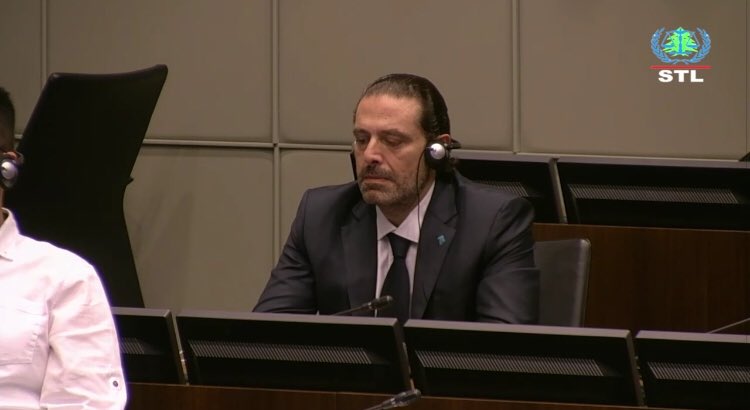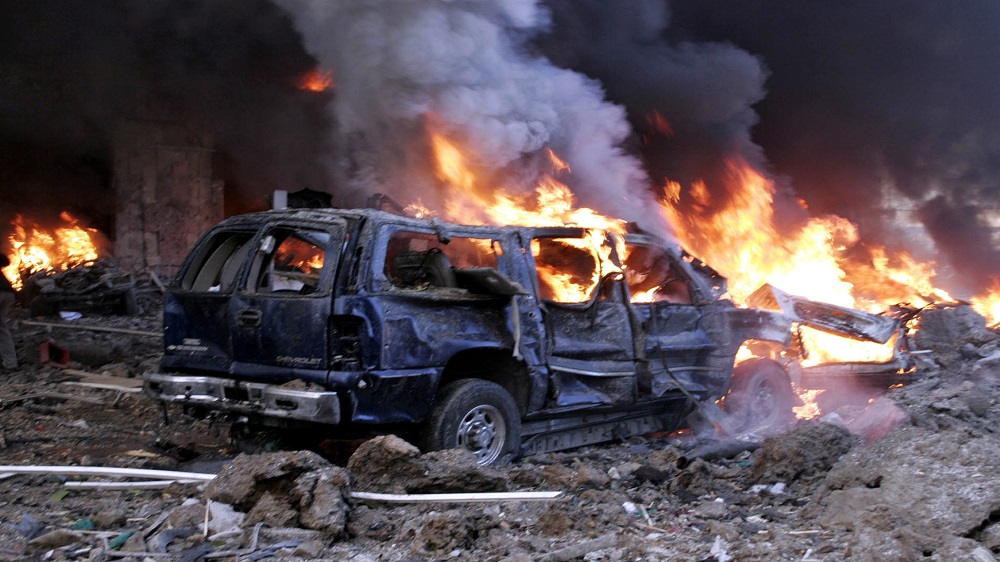Tue 18 August 2020:
A special UN-backed tribunal looking into the 2005 truck bombing assassination of former Lebanese Prime Minister Rafik Hariri on Tuesday found only one of the four defendants guilty.
Three other Hezbollah suspects were cleared on Tuesday.
The verdict by the Special Tribunal for Lebanon (STL) – an international court based near The Hague, Netherlands – came more than 15 years after Hariri was killed on February 14, 2005, along with 21 others in the huge explosion in the capital, Beirut.
“We accept the verdict of the tribunal and want justice to be implemented,” said Lebanon former Prime Minister Saad Hariri, adding that he wants “just punishment” for the criminals.

Hariri said that those who assassinated his father aimed to “change the face of Lebanon and its system and its civilized identity” and said that there will be “no compromise” on this matter.
The four members of Iran-backed militia and political party Hezbollah were accused of organising and carrying out the attack, although the group was not formally charged and denied any involvement.

The four – Salim Ayyash, Assad Sabra, Hassan Oneissi, and Hassan Habib Merhi – were tried in absentia as Hezbollah has refused to disclose their whereabouts.
Ayyash used a mobile phone identified by prosecutors as critical in the attack, a judge said.
The Special Tribunal for Lebanon is “satisfied beyond a reasonable doubt” the evidence showed that Ayyash used the phone, Judge Micheline Braidy said, reading a summary of the 2,600-page verdict.
However, prosecutors provided insufficient evidence to prove the three others were accomplices, said Judge Janet Nosworthy.
Prosecutors alleged that Hariri’s movements were tracked for months before his assassination by a network of co-conspirators using color-coded mobile phones.

The case against the defendants relied heavily on telecommunications evidence showing how the movement of the specific mobile phones tracked Hariri’s movements and additional evidence connecting the mobile phones in question to the defendants, including colocation with their personal phones.
The tribunal noted that people who took part in some of the preparations for the attack, including those who were surveilling Hariri, did not necessarily know that they were preparing for an assassination attempt or for a suicide bombing.
The judges noted that Ayyash had an affiliation with Hezbollah and that the accused were all supporters of the group, but the verdict also stopped short of directly pointing to responsibility by Hezbollah in the attack.

While noting that Hariri’s killing was “undoubtedly a political act” and that “the growing opposition to Syrian presence in Lebanon (by Hariri’s allies) threatened Syria’s interests,” Judge David Re added that while “the trial chamber is of the view Syria and Hezbollah may have had motives to eliminate Mr. Hariri and some of his political allies; however there was no evidence that Hezbollah leadership had an involvement in Mr. Hariri’s murder and there is no direct evidence of Syrian involvement in it.”
But Judge Janet Nosworthy said that those responsible for the bombing “must have known that numerous people would have been killed or injured regardless of whether or not it succeeded in killing Mr. Hariri” and evidence shows it was “designed to destabilize Lebanon generally.”
The tribunal also addressed the case of Ahmad Abu Adas, a Palestinian man who appeared in a video claiming responsibility for the attack and who has since never been found. Prosecutors had claimed that Merhi, Oneissi, and Sabra had targeted Abu Adas before the attack to find someone who would make a false claim of responsibility.
The judges found that while Abu Adas was not the suicide bomber and the video appeared to be a false claim, the prosecution had not proved beyond a reasonable doubt that the three defendants had been part of the making of the video or that they were involved in Abu Adas’ disappearance.
The mood in Beirut was anxious leading up to the reading of the verdict, with many anticipating clashes between Hariri supporters and Hezbollah supporters. The verdict had originally been scheduled for August 7 but was postponed in light of the Beirut port explosion.
Think your friends would be interested? Share this story!









